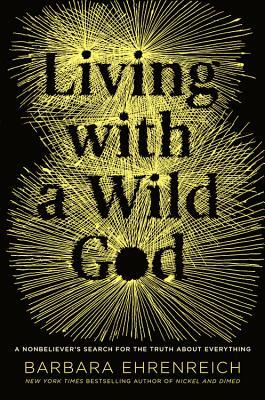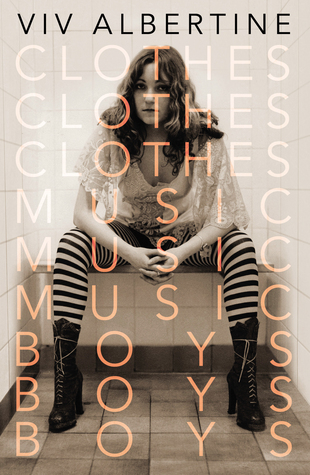by Lucy Sussex
2014—a strange year, reading-wise. Because I was doing longer reviews, for the
first time in some years, rather than shortbites, I got to savour my response
to a book more. That said, it happened that the longest reviews were not
necessarily the books I most wanted to write about. I also had less of the reviewing the
moderns/researching the Victorians experience, which has had some odd
consequences in the past. Once upon a time I was co-judging a contemporary
fiction award, and at the same time reading up for my thesis chapter on early
crime/melodrama author Ellen (Mrs Henry Wood). After a while I got her modus
operandi and she started to seem a rather better author than most of ye
moderns. However, I behaved myself and refrained from suggesting that she should
get the award.
Here follows a 2014 selection.
BIOGRAPHY
The Real Jane Austen: A Life in Small Things
Paula Byrne
Harper
Given the dearth of available information, what more can be
said about Jane Austen? Quite a lot, as it happens. Byrne eschews the
chronological approach for object theory: artefacts associated with Austen,
which have their own story, but also tell hers.
They range from portraits to lace to a royalty cheque. The result is to
put the writer in context, and show how rich was her social and cultural
milieu. Austen’s interest in the French
Revolution, her anti-slavery sympathies, her determination to be a successful
writer, all are given due emphasis by Byrne’s approach. I learnt much, not least about the model for
book publication, which I will draw upon in my next book. And I also got the
inspiration for a short story, which I sold to Ellen Datlow. Thank you, Paula
and Jane.
MEMOIR
Living with a Wild God: A Non-believer's Search for the Truth about Everything
Barbara Ehrenreich
Granta
Barbara Ehrenreich is well known as a public athiest and
investigative journalist. Now, in her seventies, she reveals a personal
contradiction, that in her teens she had a profound mystical experience. While what happened did not lead her to
religion, it still became the central event in her life. Without this "enlightenment," she would not have become the person she is. It marked her out
as special, if not anointed for a mission.
The teenage
Ehrenreich was the child of socially and geographically mobile parents,
alcoholics living in a state of marital war. She was bright, isolated, and
miserable. Her teenage words are as
unbearably self-centred as the usual adolescent effusions, and quite hard to
read. There are hints that she was mentally at risk, with odd dissociative
episodes, experienced visually, momentary altered states of mind.
Then came the
full-blown experience. She travelled with her young brother, and a boyfriend,
out of Los Angeles.
They spent a vigorous day skiing, then stopped for the night in a nondescript
town, sleeping in their car. In the morning, sleep-deprived, hungry, and badly
sunburnt, she went for a pre-dawn walk, alone. And entered into a world on
fire, subsumed into something wild, violent, and ecstatic.
In this memoir
she puts all of her investigative skills, all her research, into discovering
what happened to her. Thanks to the family atheism, she could not file the
experience into the spiritual category.
She examines religious mystics rigorously, yet feels more affinity with
shamanism. Never does she deny the experience, but neither can she relate it to
any kind of God-like being. She lacks
the religion gene, or the inspired madness of Philip K. Dick, who also saw the
mystical in California.
Suffice to say,
Ehrenreich does arrive at an explanation that satisfies her, and also takes the
reader on an extraordinary journey.
Clothes Clothes
Clothes Music Music Music Boys Boys Boys
Viv Albertine
Faber
Before Pussy Riot were the Slits. They were the original
feminist 70s punk rock band, loud and
confrontational. Albertine wrote and
played guitar with them. Her memoir has raw energy, utter honesty. She also
tells a formidable story. It begins with the comment that autobiographers are
either twats or broke: “I’m a bit of both.”
In retrospect, the
Slits are respected. At the time they faced constant misogyny and actual
violence. Singer Ari got raped, and stabbed twice. The Slits enraged male privilege—girls were
not supposed to play electric guitar. Yet Albertine notes punk was the only
time she fitted in. When the band split in 1981, she felt devastated.
In the aftermath she
taught aerobics and had a career as a film-maker. Two weeks before marrying,
she suffered an ectopic pregnancy. Years of brutal IVF followed. Shortly after
her daughter’s birth she got diagnosed with cervical cancer. It took a decade
from her life, which time she spent as a housewife on the English south coast.
Then her marriage broke up—her husband resented her creativity.
This tale could be
a misery memoir, but Albertine refuses to play victim. She has all the positive
energy of the Slits, toughness and laughter. And if at the end she is alone, no
matter. She has great relationships with her female family, and is making music
again.
Runner-Up: The Twelfth Raven: a Memoir of Stroke, Love
and Recovery
Doris Brett
UWAP
One of the hardest literary genres in which to write is the
medical memoir. Pain makes us recoil into ourselves, licking at our wounds.
Writing about it may serve as a necessary catharsis, but the results are not
necessarily good art, rather the reverse. Poet Brett is the outstanding
exception.
TRUE CRIME
The Tainted Trial of
Farah Jama
Julie Szego
Wild Dingo
This book examines the story of how a young Somali living in
Australia
was convicted of rape--due to contaminated DNA. It would have been difficult to write, the
subject belonging to an immigrant community afflicted with refugee trauma, and
subject to racial/religious prejudice.
Matters were not helped by Jama remarking that women in Australia
“have too much power.” Later he withdrew
his cooperation.
Szego did not need
it; nor that of the victim, "Maria." She shows how a chain of circumstances, a
woman found unconscious in an apparent date-rape, led to the arrest of a young black man from the other side of
town. Only DNA linked the two. The Police
laboratories denied any possibility of mix-up, and Jama got jailed.
What happened was
extraordinary, an accident of non-admissable evidence, which led to a second victim, "Taylah." Unlike Jama and Maria, she
happily talks, in a chapter that is the warm heart of this book. Szego is
particularly skilled in her treatment of ambiguities often elided in the
adversarial system, which prefers black vs white. The perception of consent,
the nature of rape—a lesser writer would have come to grief here. What also
emerges is a chilling portrayal of modern Australia, where cultures clash,
but misogyny still rules.
CRIME
Stone Mattress
Margaret Atwood
Bloomsbury
This collection contained two fine examples of a rare genre:
the crime short story. It is hard to do well, but Atwood has the form nailed. “The
Freeze-Dried Groom” is a macabre modern take on Miss Havisham, and begs for a
movie adaptation. The title story, written to entertain an audience of Arctic
tourists, answers the question: how could you murder someone in this setting,
and get away with it? It appeared in the New
Yorker. The book also contains a
horror story, “Lusus Naturae.” which essays vampire matter, realistically: the
shortest tale in the book, but brilliant, with nary a word wasted. I’d happily
anthologize it.
NATURAL HISTORY
Where Song Began: Australia's Birds and How They Changed the World
Tim Low
Penguin
After Australia’s
European discovery, its weird creatures became famous worldwide. Marsupials
have hogged the spotlight, but much less is known about the native birds. How
extraordinary they really are is the focus of this book. Meet the white-winged chough, the only bird
that practices slavery. Or the magpie goose, which is neither magpie nor goose,
but belongs to a unique waterfowl family.
Here DNA studies
upset the orthodoxy, like a quoll in a henhouse. Budgies may have conquered the
world as cage-birds, but their fellow feathered friends did so by wing-power
millions of years earlier. Parrots and songbirds originated in Australia,
then flew across the globe. The original songster was the lyrebird.
The interplay
between environment and the avians is a major feature of this book. Australia’s
soils and sun creates excess nectar. It nourishes birds, and they act as major
pollinators. Without them, forests will not survive. Moreover, the nectar fuels competition
between species, the result being some of the most aggressive and noisy birds
on the planet. Another factor is brainpower: Australia’s
big parrots, and their New
Zealand cousins are among the most
intelligent of all creatures. They
deserve much better than to spend their long lives alone in small cages.
Low has written
a book highly informative, but also most readable. Twitchers everywhere will
rejoice, but there is also much here that ordinary readers will enjoy.
For fiction, a book already mentioned by the Aqueduct
columnists:
We Are All Completely Beside Ourselves
Karen Joy Fowler
At the heart of this book is what it means to be human. Can
we be Lords of Creation and also part-Neanderthal? Are we so
different from the apes? Anthropomorphism
is ancient, the act of seeing animals in our own image. Instead Fowler suggests
empathy as a better alternative, without false sentiment. This novel is
weighty, yet written with a lightness of touch that is more effective than any
agitprop. It charts a profound
philosophic journey, mixing wit with scientific rigour. The result might be Fowler’s most important
work yet.
And I also add Ann Leckie’s Ancillary Justice, a book that has run away with many prizes, but
which is also concerned with what it means to be human. And of course,
post-colonialism, the crumbling of empires.
Lucy Sussex was born in New
Zealand in 1957. She has degrees in English and Librarianship from
Monash University, and is a freelance researcher, editor and writer.
She has published widely, writing anything from literary criticism to
horror and detective stories. In addition she is a literary
archaeologist, rediscovering and republishing the nineteenth-century
Australian crime writers Mary Fortune and Ellen Davitt. Her short
story, `My Lady Tongue' won a Ditmar (Australian Science Fiction
Achievement Award) in 1988. In 1994 she was a judge for the
international Tiptree award, which honours speculative fiction
exploring notions of gender. Her first adult novel, The Scarlet Rider, is about biography, Victorian detective fiction, voodoo and a ghost. Aqueduct Press published her collection, Absolute Uncertainty, in 2006.




No comments:
Post a Comment